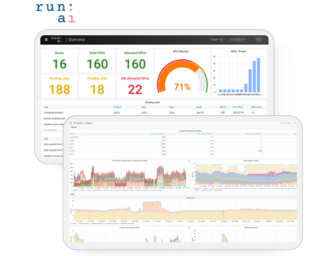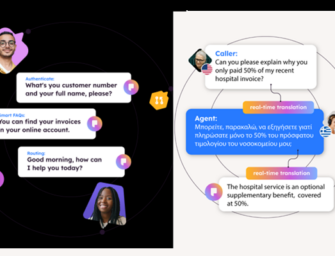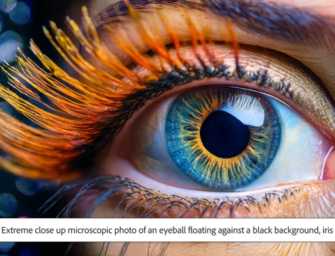Some UK Users Thought Alexa Was Serving an Ad for Fortnite but Amazon Says “Not An Advertisement”

Did Alexa just start serving ads promoting Fornite today? Or, is it a promotion for one of 47 Fortnite Alexa skills available in the U.K. as opposed to the game itself? Or, is it just Alexa showing some personality by referencing a wildly popular video game? Amazon says it was more about personality. At least two U.K. users discovered this morning that Alexa was promoting Fortnite when asked, “How’s it going?” or “How are you today?” Alexa’s response:
I’m fired up for battle. I’ve been playing Fortnite. If you’re also aboard the battle bus, ask me where should I drop in Fortnite to hear my recommended landing spots.
Ben Davis (@herrhuld), an editor at eConsultancy, asked a follow-up question about whether Alexa liked Fortnite and her response was “I’ve not played Fortnite before.” He pointed the inconsistency of Alexa saying it had been playing Fortnite and then in the same conversation saying it had not.
This ad is horrible (HT @petetrainor) but also interesting that Alexa can’t get its story straight when I ask a follow-up question. pic.twitter.com/XAvrVmuV7s
— Ben Davis (@herrhuld) March 15, 2019
Pete Trainor (@petetrainor) had a different reaction when hearing the Fortnite promotion. He immediately pegged it as advertising and said he was removing Echo devices from his home.
Today’s cynical sales and advertising ploy of the day… @amazon selling popular phrases to brands trying to infiltrate our lives. So that’s me removing all Echoes from my house BECAUSE I HAVE YOUNG CHILDREN! pic.twitter.com/7hZY3ZWGUz
— Pete TrΛinor (@petetrainor) March 15, 2019
Was This an Ad? Amazon Says No.
It was not clear to me this was an advertisement although I can see why a user might think so. My industry sources independently told me that it is more likely an attempt to drive discovery about an Alexa feature that supports Fortnite players and not an ad. The official response from Amazon says,
When customers ask Alexa about her interests, she occasionally responds with answers that make reference to popular culture. Today’s answer referenced a popular videogame Fortnite. This was not an advertisement—we have not introduced advertising on Alexa.
That is an unequivocal denial. So, the real story may be that Amazon is experimenting with new tools to drive skill or capability discovery. Alexa skill discovery has been problematic with Voicebot research showing that only about 50% of users say they have ever tried using a third-party voice app on smart speakers. It appears increasingly likely that this is an attempt by Amazon to drive discovery around an Alexa skill associated with a popular game. In that way, it may be helpful to users and a welcome discovery tool. However, that value will not be recognized if it is viewed as an ad whether or not Epic Games paid for the promotion.
Is This Beauty and Beast on Google Home All Over Again
Even though Amazon says the Fortnite promotion is not an ad, there is a risk that consumers will still be concerned. Google Home in 2017 raised the ire of many users when it inserted a promotion for Disney’s Beauty and the Beast movie launch within information about that user’s day. At the time, a Google spokesperson said it was not an ad. The official statement characterized it as an experiment that was not paid for by the studio but done with their knowledge. That sounded like a trial-run of advertising through Google Home. Alexa’s Fornite promotion doesn’t appear to be as ad-oriented as announcing a movie premiere, but the initial reaction of Mr. Trainor does illustrate that even though the Fortnite reference on Alexa was not an ad, many consumers may believe it was.
BTW There is Already Advertising on Alexa and Google Home
Both Amazon and Google have largely been viewed as not allowing advertising through Alexa and Google Assistant as there is a prohibition of ads through third-party voice apps. Amazon quite publicly updated its policies in May 2017 to counter moves by a startup called VoiceLabs which had developed an ad network and was delivering insertion advertisements through participating Alexa skills. The policy change which ended VoiceLabs service came about despite the company informing Amazon months earlier of its intentions and receiving what its executives thought was tacit permission.
Despite these earlier moves by Amazon and Google, there are exceptions to ad prohibitions on voice assistants. First of all, both platforms allow ads within streaming media such as news, podcasts, and other entertainment. You will receive ads today when listening to many Alexa flash briefings, Pandora, TuneIn, and podcasts. Second, both platforms recognize that a custom Alexa skill or Google Action developed by a brand may include promotional material.
So, there have been and are today promotions and actual commercials served through smart speakers. Where they have been absent is in first-party interactions with Alexa and Google Assistant. First-party interactions are those services provided directly by the voice assistant as opposed to a third-party. That was part of the backlash that Google received around Beauty and the Beast. The ad was inserted into a morning routine where Google Assistant was telling the user about the day ahead. The ad was seemingly attempting to monetize that focused user attention about their schedule. The answer provided by Alexa about Fortnite was also during a first-party interaction although a more casual one that is not task-oriented. This is clearly a space where many users are not expecting to hear advertisements because it seems entirely out of context. The conclusion here is that today’s Fortnite reference is not an attempt to advertise to smart speaker users but there remains consumer sensitivity around this issue.
Discovered via eConsultancy.
Updated at 229 EDT on March 15, 2019 to reflect additional information.
Follow @bretkinsella Follow @voicebotai
Google Home Just Served an Ad, Alexa Uses a Different Approach
A Fortnite Player Created an Alexa Skill to Assist His Gameplay








